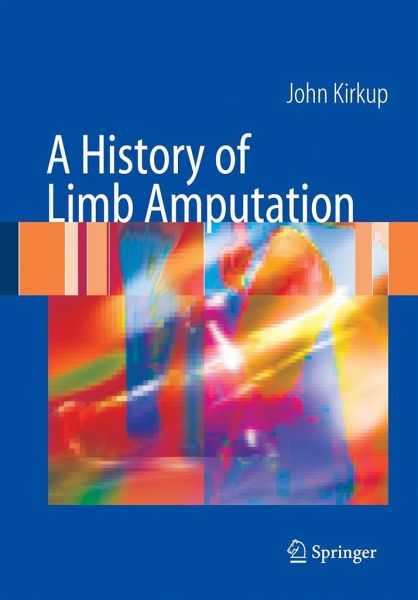
A History of Limb Amputation

PAYBACK Punkte
106 °P sammeln!
First part of the book presents a unique and coherent study of natural amputations due to congenital absence, disease, frostbite, toxins, domestic and wild animal trauma, and non-medical reasons related to punitive, ritual and legal decisions. Following the introduction of gun powder in the 15th century, surgical action became significant. The subsequent development of surgical amputation and its difficulties form a major part of the book, summarising the evolution of the control of haemorrhage and infection, pain relief, techniques, instrumentation, complications, prostheses, results and case...
First part of the book presents a unique and coherent study of natural amputations due to congenital absence, disease, frostbite, toxins, domestic and wild animal trauma, and non-medical reasons related to punitive, ritual and legal decisions. Following the introduction of gun powder in the 15th century, surgical action became significant. The subsequent development of surgical amputation and its difficulties form a major part of the book, summarising the evolution of the control of haemorrhage and infection, pain relief, techniques, instrumentation, complications, prostheses, results and case histories. In addition, alternative procedures, increasingly important in the last two centuries, are debated and factors associated with self-amputation in extremis, not as rare according to press reports, are also examined.
This richly illustrated book will be of interest to medical and social historians, surgeons, limb-fitting surgeons and prosthetists, anaesthetists, limb manufacturers, social historians, ethnologists and amputees.
This richly illustrated book will be of interest to medical and social historians, surgeons, limb-fitting surgeons and prosthetists, anaesthetists, limb manufacturers, social historians, ethnologists and amputees.













